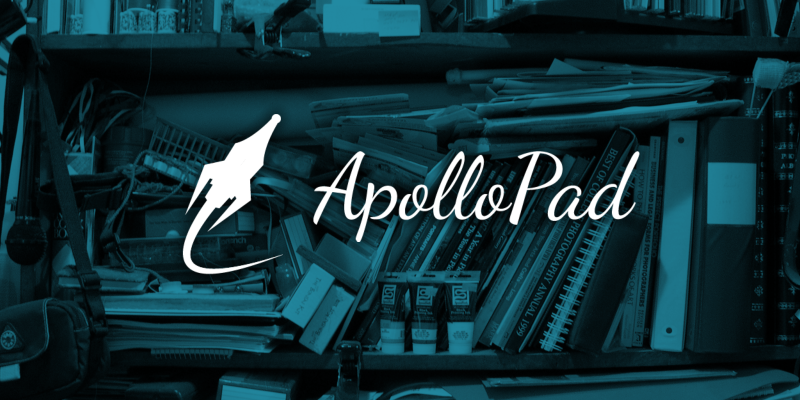ApolloPad has had an interesting few years since its inception in late 2015, and we have been far too quiet. In that time, our blog has remained largely inactive, and updates to the platform have been sporadic and purely for maintenance purposes. ApolloPad is a labour of love, but we've had to focus elsewhere recently. Happily, that's now changing.
But before we get to what's happening next, like all good stories we need to look back to see where we've come from so far.
How Did ApolloPad Start?
The people behind the scenes of ApolloPad are Added Bytes, a small firm based near Brighton in the UK. At the time ApolloPad was born, Added Bytes was just one person, and ApolloPad was one of three products in the Added Bytes family.
Unexpectedly, while ApolloPad was finding its feet shortly after launch, one of our other products - now called Readable - took off. Following a redesign and changing of the business model, it went from a fun side-project to the main focus of the business, taking about 110% of the time available to work on it.
Unfortunately, the demands of Readable meant that ApolloPad had to take a back seat. We didn't love ApolloPad any less, but we had to look after paying customers first and focus on one product. We never considered closing ApolloPad and we always intended to continue with its development.
So Where Does ApolloPad Stand?
We are finally at the stage where we can start to dedicate some real time to ApolloPad development. We have a set of known bugs which we are working to eliminate, as well as a large set of updates to our core text engine that we can bring over from Readable. We have a few items left on our V1 feature list which we would like to complete, including our feedback engine, which will allow you to request feedback from other people securely on your work.
We will also be completing our subscription engine, allowing us to take payments. The plan was (and still is) to complete the V1 feature set before charging for usage. Charging for usage is obviously of interest to all current users, so we want to be clear - when we do introduce payments, if you prefer not to pay for a subscription to ApolloPad you will be able to take your existing content out of our system easily, in a common open format, and without paying. We haven't decided on our pricing model yet, but will give plenty of advance warning before we start changing anything.
What Comes After That?
Our intention is to make ApolloPad the finest book writing tool available on the web. We are keen to stick to the principles that got us to this point: a simple, clean interface, with plenty of power and plenty of tools under the hood, should you wish to make use of them.
What that means for 2019 is better book outputs, a configurable interface, better editor and feedback tools and far more besides.
We consider it a privilege and a pleasure to be able to work on ApolloPad and the highest of compliments that you, our lovely users, are using our software to create your wonderful works.

